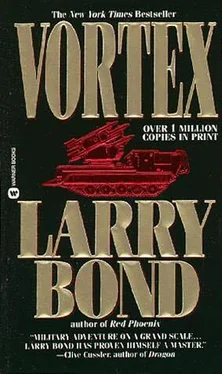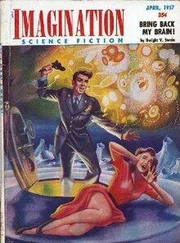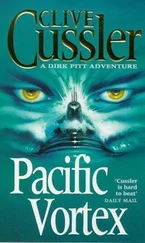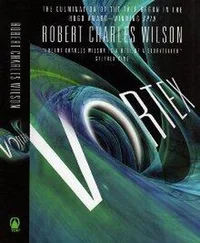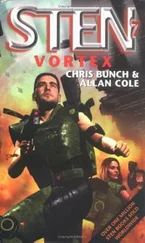fighting vehicles prowled outside the wire-Rookiats of the Pretoria Light
Horse hunting for enemy infiltrators.
At the eastern end of the compound, more barbed wire surrounded a group of five camouflaged mounds-the nuclear weapons storage bunkers that were his main responsibility. A separate slit trench ran from north to south just west of the weapons bunkers, further isolating the storage site from the rest of the Pelindaba complex. Beyond the trench, firing pits for 120mm and 60mm mortars dotted a patch of open ground stretching west to the rock gardens, shade trees, and buildings of the research center.
Shoulder-high earth and sandbag walls provided some protection for the four Cactus SAM vehicles parked in and among the rock gardens.
“Our chemical protection gear is arriving, Colonel.”
Peiper turned. His adjutant, Captain van Daalen, pointed to a line of five-ton trucks pulling up to the peacetime battalion-headquarters building.
“Excellent, Captain. Have each company draw its gear as it comes off work detail. And inform all commanders that I plan to hold our first gas-attack drill early this evening.”
Van Daalen saluted and hurried away.
Peiper watched him go, knowing that the order wouldn’t be popular with his men. The gas mask, hood, gauntlets, suit, and boots needed to fully protect a man against attack by poison gas or nerve agents were cumbersome, clumsy, and confining. Even worse, they trapped body heat and quickly became unbearably hot even in cool weather-let alone on a warm spring evening.
He scowled. His soldiers’ complaints and comfort were completely unimportant. In fact, only one thing mattered: fending off the inevitable
Cuban attempt to destroy or seize South Africa’s nuclear stockpile.
Peiper turned on his heel and headed back toward the cool, dimly lit recesses of his command bunker. The Cuban attack could come at almost any time; certainly within days, possibly even within hours. But Castro’s minions were bound to unleash a choking, burning deluge of chemical weapons first weapons against which his troops were now protected.
The Afrikaner colonel smiled wolfishly. When the communists and their kaffir allies came charging in, expecting to find most of his men dead or disabled, they’d be met instead by a hail of small-arms and artillery fire. It would be an easy victory.
He trotted down the steps into his bunker with that cold, cruel smile still on his lips.
NOVEMBER 28-WDEAWAKE AIRFIELD, ASCENSION ISLAND
Nearly one thousand men crowded around the low raised platform. Green camouflage paint robbed each man’s face of its individuality, but did nothing to cloak the air of grim expectation permeating the entire hangar.
Each Ranger stood waiting in absolute silence, together with his friends and comrades and yet strangely alone.
Up on the platform, Lt. Col. Robert O’Connell caught a glimpse of movement near the hangar doors. Gener was coming back from the communications center. O’Connell straightened up, feeling the first trickle of cold sweat under his arms. This was it.
“Ah-tench-hut!”
The Rangers snapped to rigid attention as their colonel threaded his way through them and bounded onto the platform.
Gener nodded once to O’Connell, his eyes alight with excitement. Then he turned to face the waiting battalions.
“At ease!”
A tiny, almost invisible, wave of relaxation rippled through the hangar.
The colonel pulled a single sheet of thin paper out of a pocket and held it up so that every man could see it.
“This signal came in from
Washington five minutes ago. It’s official, gentlemen! Brave Fortune has a green light! We go in tonight. Exactly as planned.”
O’Connell felt some of his nervous tension evaporate as the mission became a reality. No one had really been sure that Washington had the guts to risk trying such a stunt, and in many ways, that uncertainty had been the worst part of
the wait. From now on each man’s fate was out of the hands of unknown politicians and generals and in the hands of God, impersonal chance, and the team’s fighting skills. Somehow that was easier to take.
Gener lowered the message form and studied the sea of camouflaged faces in front of him.
“Before Lieutenant Colonel O’Connell goes over the ops order with you, I just want to say one thing. And that’s that I’m damned proud to be fighting with you boys. Damned proud. Rangers, I salute you.”
He brought his hand up in a sweeping, almost exuberant, salute and held it as every soldier in the vast hangar returned the gesture.
The colonel dropped his hand, spun on his heel, and looked at O’Connell.
“They’re all yours, Colonel.”
Yeah, right. At least until we hit the ground, O’Connell thought. He moved to the edge of the platform. Two noncoms wrestled a large map into position behind him. Circles, arrows, and dotted lines marked drop zones, objectives, and approach routes. He half-turned toward the map, feeling the pressure of nearly one thousand pairs of eyes watching his every move.
“At oh one hundred hours tomorrow, the First and Second battalions, plus elements of the regimental HQ, will make airborne assaults on the following targets inside the Republic of South Africa …… O’Connell was sure that all of his men already knew the entire attack plan both forward and backward. Some could probably repeat it back word for word. But it wouldn’t hurt to go over the highlights one last time.
Airborne landings in darkness and against opposition were full of sound and fury-glowing tracers in the night, blinding explosions, and dead men entangled in still-falling parachutes. In the midst of such brain-numbing confusion, it was vital that every Ranger know exactly what he was supposed to be doing at any given moment. And since there were bound to be casualties, he should know exactly what his comrades were supposed to be doing as well.
In what seemed like no time at all, he was finished. 0”Con nell let the last map page fall back and turned to face the waiting battalions.
“This is it, gentlemen. We’ve worked hard together preparing for this op. But now you’re as ready as we can make you.”
He lowered his voice, speaking quietly now so that every man had to strain to hear him.
“This mission won’t be easy. And it sure as hell won’t be a bloodless cakewalk. But remember that this mission is strategic. And when we’re done, these Afrikaner bastards are gonna know exactly who’s jumped down their throats and kicked their guts out.”
He swept the black beret off his head and lifted it high in one hand. His voice grew louder, more confident.
“And who’s that gonna be?”
The answer came flooding back, shouted from a thousand throats.
“Rangers!
Rangers! Rangers!”
O’Connell grinned. He let them yell awhile longer and then held up a hand for silence.
“First and Second battalions of the Seventy-fifth, board your aircraft.”
In seconds, companies and platoons were forming up into march columns-each heading for one of the ten C-141 jet transports waiting outside on the tarmac.
Brave Fortune was under way.
NOVEMBER 28-ABOARD SIERRA ONE ZERO, OVER THE SOUTH ATLANTIC OFF THE COAST OF ANGOLA
The MC-141 Starlifter known as Sierra One Zero flew east toward Africa at thirty thousand feet, surrounded by a manmade constellation of winking navigation lights. Those ahead and slightly higher belonged to four huge
SAC KC10 tankers. The lights behind and to either side belonged to
Sierra One Zero’s four companions.
“All right, disconnect.” Sierra One Zero’s pilot, a full Air Force colonel, glanced across the darkened cockpit at his copilot.
Читать дальше
